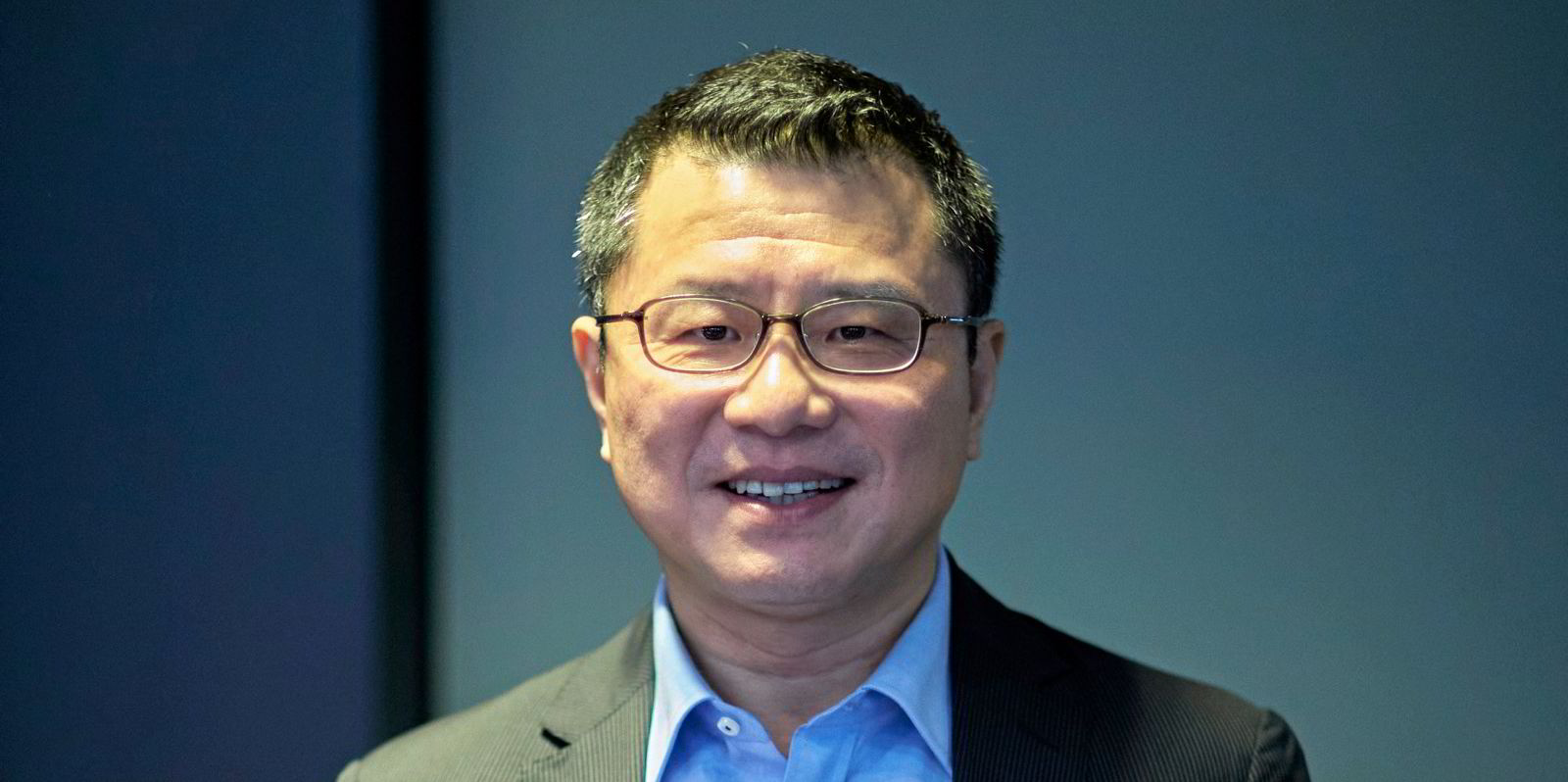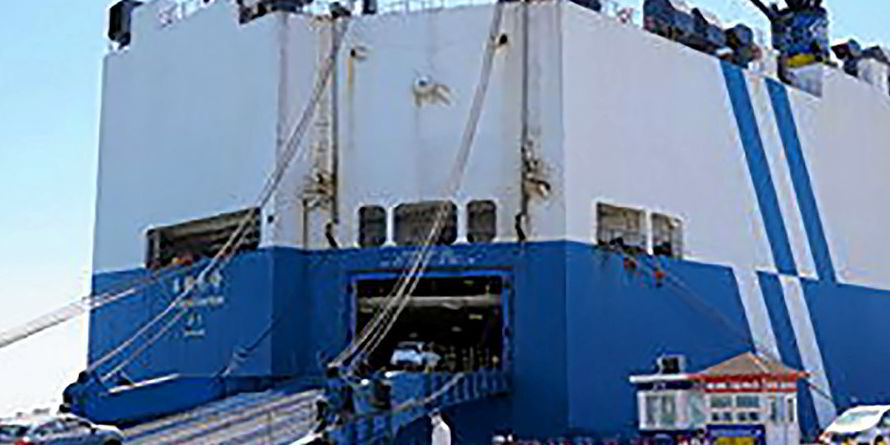Container ship tonnage provider Seaspan Corp is joining the exploding car-carrier segment with an order for three newbuildings.
According to shipbuilding sources, Seaspan, through an unidentified Chinese joint-venture partner, is at an advanced stage of discussions with China’s Shanghai Waigaoqiao Shipbuilding (SWS) for three LNG dual-fuel pure car/truck carrier (PCTC) newbuildings that may cost the company $300m.
Officials at SWS declined to comment when contacted, citing contract confidentiality, while Seaspan did not reply to emails requesting further information.
Sources said Seaspan is not ordering the 8,600-ceu PCTC newbuildings on speculation. It is booking the car carriers on the back of long-term charter contracts from Cosco Shipping Specialised Carriers — a unit of state-owned enterprise group Cosco.
The three PCTC newbuildings are part of the 15-ship LNG dual-fuel newbuilding push that Cosco Specialised wants.
The rate and term of the contracts have not been disclosed.
The shipbuilding price has not been disclosed either, but brokers said with rising labour and shipbuilding materials cost, they think Seaspan will be paying close to $100m each for the car carriers.
SWS is slated to deliver the trio in 2025.
Shipping players said Seaspan is working to “rekindle the relationship” with Cosco.
“In the past, Seaspan ordered container ship newbuildings on the back of charter contracts from China Shipping Container Lines (CSCL) — the liner arm of China Shipping Group [CSG],” a shipping source said. “But that relationship stopped when CSG merged with Cosco in 2016.”
The Guangzhou-based Cosco branch is expanding its car-carrier fleet rapidly as it needs the vessels to transport Chinese-built vehicles overseas.
The Chinese car export industry is going through rapid growth. Analysts have forecasted that China’s car export volume might reach a new record high of 3m by the end of this year.
The country exported 2.02m finished cars last year — double the volume of 2020 despite chip shortages and the Covid-19 pandemic.
Finance sources said SPDB Financial Leasing is backing Seaspan’s three ships at SWS.
Shipbuilding sources said two Chinese leasing companies — Bank of Communications Financial Leasing (Bocomm Leasing) and SPDB Financial Leasing — are joining forces and will be involved in ordering the remaining 12 PCTC newbuildings at Xiamen Shipbuilding Industry and Guangzhou Shipyard International (GSI).
“Xiamen and GSI will each build six 7,600-ceu PCTC newbuildings,” a shipbuilding source said.
Bocomm Leasing is behind all six Xiamen ships, while SPDB has three of those at GSI. Financing for the remaining three GSI ships is still up for grabs.
Another financier, CMB Financial Leasing, has been less lucky.
CMB originally hoped to order the six GSI units but failed to get internal approval for the transaction and had to give up.
Last month, TradeWinds reported that CMB ordered six LNG dual-fuel PCTC newbuildings at Xiamen. But shipbuilding and finance sources said the Xiamen ships were all Bocomm’s from the start.
Cosco Shipping recently joined forces with SAIC Anji Logistics and Shanghai International Port Group’s SIPG Logistics to create a car-carrier company with a registered capital of CNY 650m ($96m). The joint venture was called Guangzhou Cosco Car Carrier Shipping Co.
Cosco Shipping is the major stakeholder with 42.5% ownership, followed by SPIG Logistics with 37.5% shares and SAIC Anji — the shipping arm of Chinese automaker SAIC Motor — 20%.
The purpose of setting up the joint company was to strengthen the Chinese automobile export and supply chain. The new outfit will kick off operations by acquiring or chartering vessels that are controlled by Cosco Shipping, which currently owns five pure car carriers that were built between 1998 and 2011.
The joint venture will also order newbuildings, acquire secondhand vessels and charter ships to meet demand.






